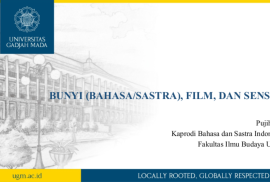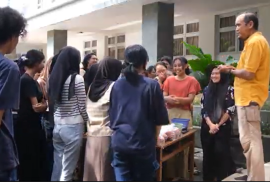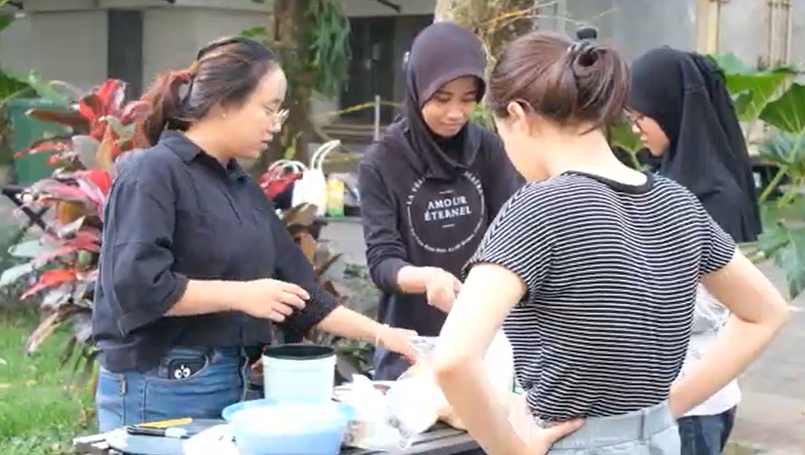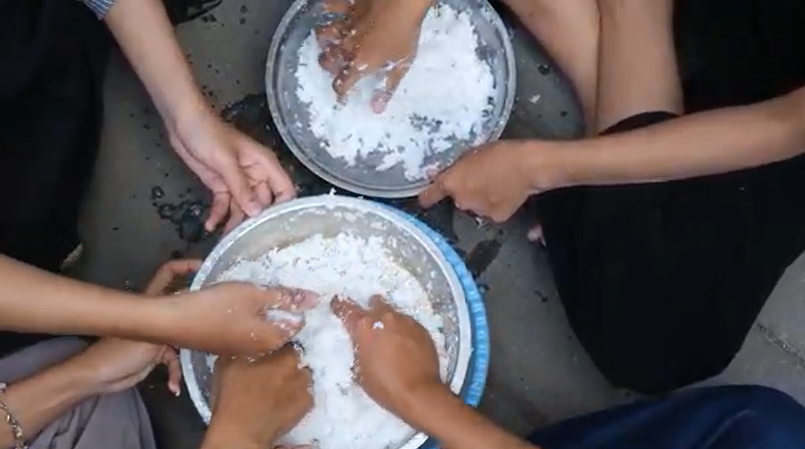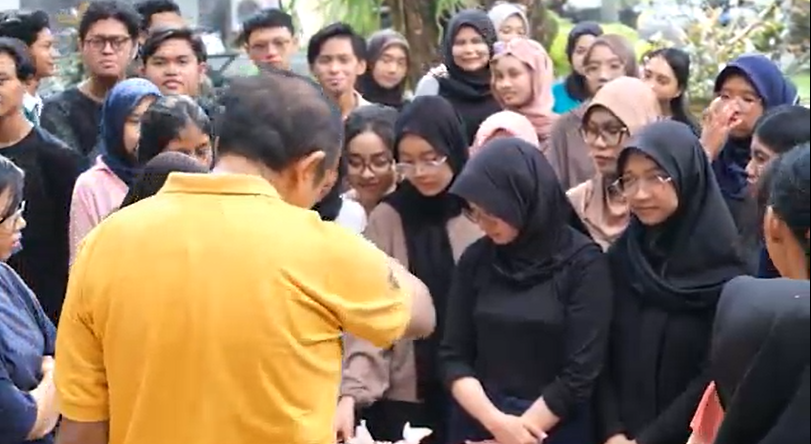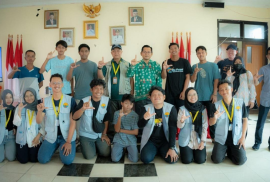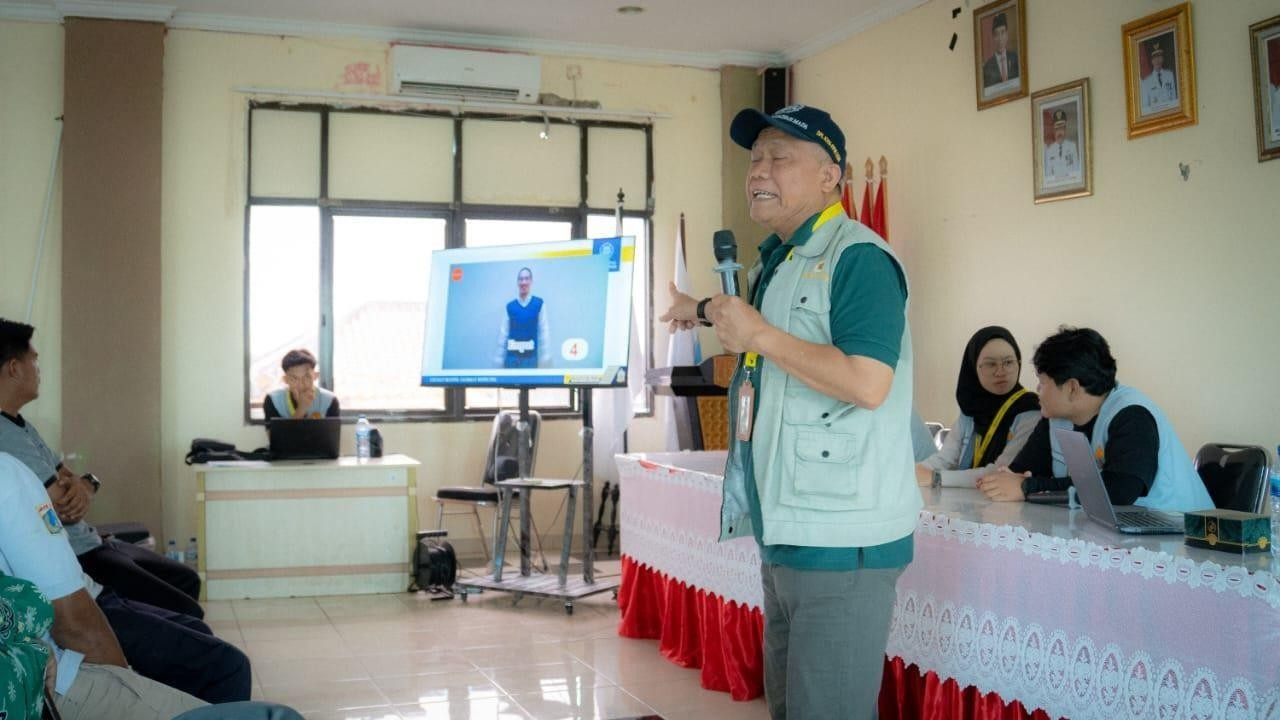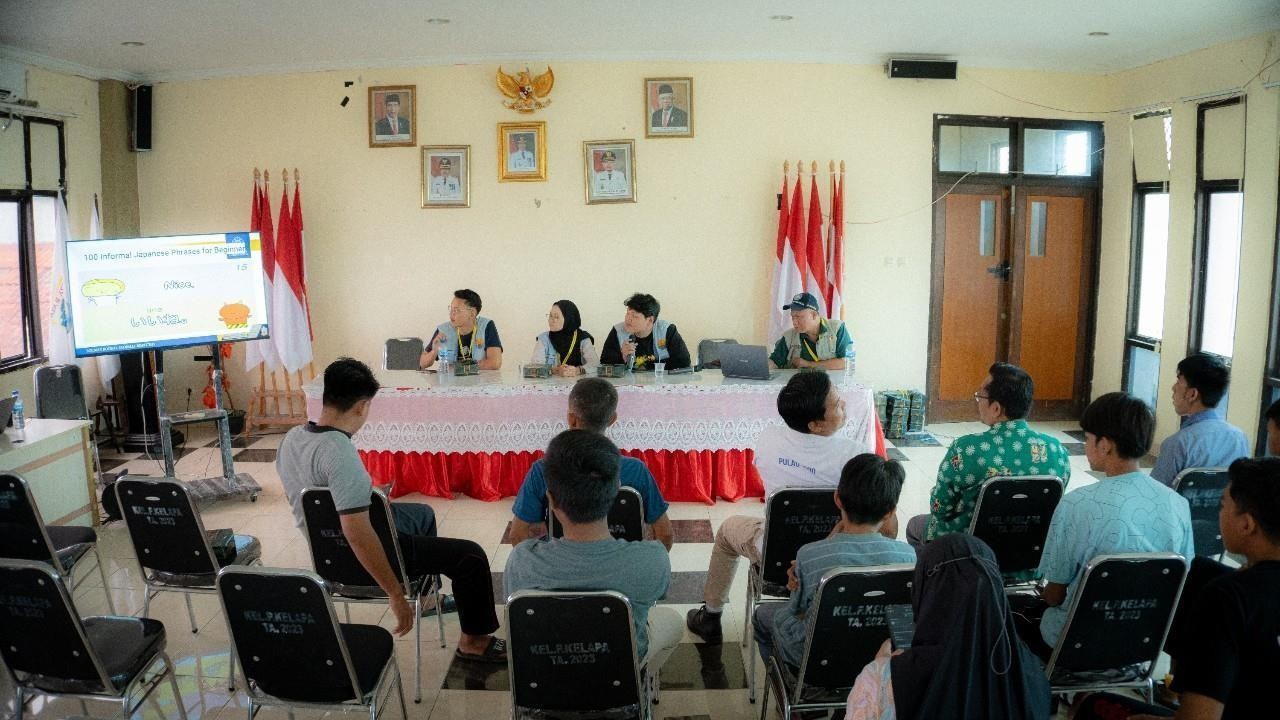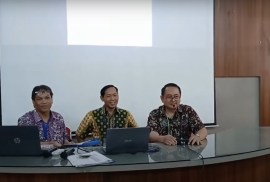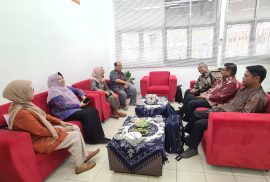Dr. Pujiharto, M.Hum., Main Supervisor/Head Lecturer at the Department of Language and Literature, Faculty of Cultural Sciences, Universitas Gadjah Mada, was recently involved in Community Service as a resource person at the Socialization of Independent Sensor Village. The event took place on Tuesday, July 16, 2024, in Ambarketawang Village, Gamping, Yogyakarta. On this occasion, Dr. Pujiharto delivered material on sound in language and literature, film, and censorship.
The Desa Sensor Mandiri program aims to form and strengthen community awareness in sorting and choosing spectacles wisely. The program involves a series of activities carried out continuously in selected villages or sub-districts, with the hope of creating human resources capable of self-censorship.
Through this program, it is hoped that the community can increase their literacy to protect themselves from the negative impact of films, as well as maintain regional customs and culture so that they are preserved and sustainable. In addition, this program is in line with Article 61 of Law No. 33/2009 on Film, which states that the Film Censorship Board (LSF) is tasked with assisting the public in choosing and enjoying quality films, as well as understanding the influence of films and film advertisements.

